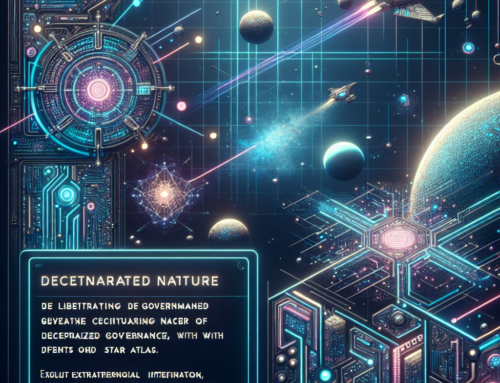Republicanism in Star Atlas: Titan Analytics Insights

Republicanism in Star Atlas: Titan Analytics Insights
In the dynamic universe of Star Atlas, where interstellar exploration meets the intricacies of governance, the concept of republicanism stands out as a pivotal lens through which we can understand the game’s socio-political landscape. Republicanism, rooted in the principles of representative democracy, emphasizes the importance of civic participation, the rule of law, and the separation of powers. In Star Atlas, these principles can be seen in the interactions among players, factions, and the overarching game mechanics.
The Foundation of Republicanism
At its core, republicanism promotes the idea that power belongs to the people. This concept is mirrored in Star Atlas, where players—acting as citizens within the game’s universe—engage in various activities that influence the course of their factions and the overall game environment. The game features multiple factions, each with its own governance systems, encouraging players to select representatives or leaders who best reflect their interests and values.
Factions and Representation
In Star Atlas, the three primary factions—MUD, ONI, and UST—exemplify the essence of republicanism by allowing players to align with groups that share common goals and ideologies. Each faction operates within its own political structure, akin to a republic, where leaders are chosen based on merit, loyalty, and popular support. Players can vote on crucial decisions, influencing faction policies and direction, which reinforces the concept of collective governance.
Civic Participation and Engagement
Republicanism thrives on civic engagement, which is a vital aspect of Star Atlas. Players are urged to participate actively in the game, whether through exploration, resource gathering, or combat. This engagement is not just for personal advancement but also enhances the faction’s strength and influence. The more players contribute to their factions, the more they amplify their collective voice, echoing the republican ethos of collaboration and shared responsibility.
The Role of Technology and Governance
In the Star Atlas universe, technology plays a crucial role in facilitating governance and engagement among players. Smart contracts and blockchain technology enhance transparency and trust, essential components of any republican system. By leveraging Solana’s blockchain, Star Atlas ensures that decisions made by players are verifiable and immutable, empowering the community while safeguarding against corruption and abuse of power.
Economic Systems and Resource Management
Star Atlas’s economy is another arena where republican principles manifest. Resources are not concentrated in the hands of a few; instead, they are available for collective use and management. Players can trade, mine, and invest in shared resources—leveraging their contributions for the greater good. Such economic structures promote egalitarianism, aligning with the republican idea that wealth and power should be distributed fairly among citizens.
Conclusion
As we delve into the intricacies of Star Atlas, it’s clear that republicanism offers a meaningful framework for understanding player interactions, governance, and community dynamics. The game’s design reflects key republican principles, enabling players to engage in a shared political and economic ecosystem that emphasizes representation, civic involvement, and shared resources.
For enthusiasts eager to explore detailed data modules and insights related to Star Atlas, we invite you to visit Titan Analytics Star Atlas data modules. If you have any questions or need further information, don’t hesitate to reach out to us at Titan Analytics contact page. Join us in exploring the vast cosmos of Star Atlas and experience the rich interplay of republicanism within this exciting universe!




